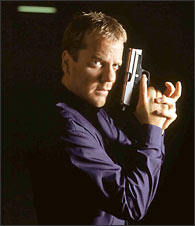So, have I ever told you that I did Basic Officer Training with one of the only Canadian soldiers to have engaged in combat between the Korean War and Afghanistan?...
Let me explain:
I only came to this realization last week, while reading Carol Off's new book, The Ghosts of Medak pocket, which my brother had gotten for me as a Christmas Present.
In the summer of 1997, I was in Gagetown, New Brunswick, suffering through RESO (Reserve Entry Scheme Officer), Phase 2 training. Our platoon was evenly divided between two groups. One the one hand, you had the mostly older (twentysomething) Reservists, many of whom had been Corporals (like me) or Sergeants in the Militia, and some of whom had done UN tours overseas in the early nineties in Bosnia and Croatia. On the other hand, you had the Regular Force "Ringnockers", as we called them: People from the Royal Military College. As a rule, these Officer Cadets tended to be younger, and extremely green, since most had gone directly from highschool to RMC. Most of them were hopeless at the beginning of the course, and many were hopeless right up to the end. There were, however, exceptions to this rule.
One of the exceptions was Scott Leblanc, a short, burly fellow in his mid-twenties with a friendly face, quiet manner, and bright blue eyes. When I first met him, aside from the fact that he was an older Officer Cadet at RMC, there was nothing remarkable about him. As time went on, some of the guys who had gone overseas in the early nineties would talk about Croatia and what happened to 2PPCLI (The Second Battalion of the Princess Patricia's Canadian Light Infantry) in the Medak Pocket. Every once in a while, someone would ask Scott about his decoration for his actions during a firefight which had never been made public, but the laconic former Artillery Reservist from the Maritimes who was not much of a braggart never seemed to have much to say about it. Even the instructors seemed aware of the "incident", which at this time, was fairly common knowledge among infantrymen. The Canadian Forces is not a huge organization, after all, and word seems to get around. We never really got the full story from Scott, only that in 1993, then-Private Leblanc's platoon had fought off an attack by Croatian forces during the course of a very dangerous operation in 1993. All that Leblanc would admit to is that he had burned off a couple of hundred rounds from his C-9 Light Machine Gun, and that the Croats had been repulsed.
I only got the full story when I read Off's account of that action, which included references to Leblanc and his section's heroics. It was easy to understand why this "incident" had never been made public. This fight occurred in '93, at almost the same time that the Somalia scandal broke, and Canadians had been shaken by the acts of the soon-to-be-disbanded Airborne Regiment. It simply wouldn't do to have another story in the media where Canadian troops, ostensibly involved in UN "Peacekeeping Operations", had been engaged in combat, and had probably killed Croat troops (The Croat government reported 27 KIA during combat in the Pocket).
Well, as we now know, the UN operations that took place in the Balkans in the early nineties were certainly not what would have been considered peacekeeping in the traditional sense of the word. It was an ugly, complicated conflict, and Canadian troops had been called upon to interpose themselves between the Serb and Croat forces in an attempt to halt the ethnic cleansing that we now know took place in that area. In spite of being hamstrung by complicated rules of engagement, the Canadians had acquitted themselves admirably, although many were scarred by what they saw there, and frustrated that because of the UN-imposed rules, they had not managed to prevent the murder of dozens of innocents. At the time, however, that isn't the way that the leadership of the Canadian Forces saw it, and so, as Off relates in her book, the brass decided to cover up the Medak Pocket incident. It wasn't until much later that the truth began leaking out. And only recently have the troops involved in that operation been fully recognized for what they did. Some of the members of the PPCLI Battle Group who were there have never recovered, mentally or physically.
In Summer of 1997, Scott, who four years earlier had, in the midst of heavy fire, bravely risen from his trench to fire his machine-gun into a Croat force attempting to flank his platoons position, and probably saved some of his comrades in doing so, ended up coming in second place overall on the course. Top candidate in my company was another RMC type, Ryan Latinovitch, who had transferred to the Infantry late in his time at RMC, and was therefore also older than most of the Regular Force Officer Cadets. Last I heard, Ryan was a Captain in command of 3PPCLI's Recce (Reconnaissance) Platoon,and done a tour in Afghanistan. I admire both of these guys.
The days of Suez or Cyprus-style "peacekeeping" are long past. Today, the Canadian Forces operate under very different and far more dangerous situations, and have been called upon to use lethal force more than once to protect themselves and achieve their objectives. The national myth of Canadian peacekeepers as benign observers should be put to rest. Canadian soldiers are trained to fight, and they do it very well, when they have to. Canada should be proud that men and women of the calibre of Leblanc and Latinovitch serve this country, put themselves in harm's way, and sacrifice so much for the rest of us.
Subscribe to:
Post Comments (Atom)


No comments:
Post a Comment